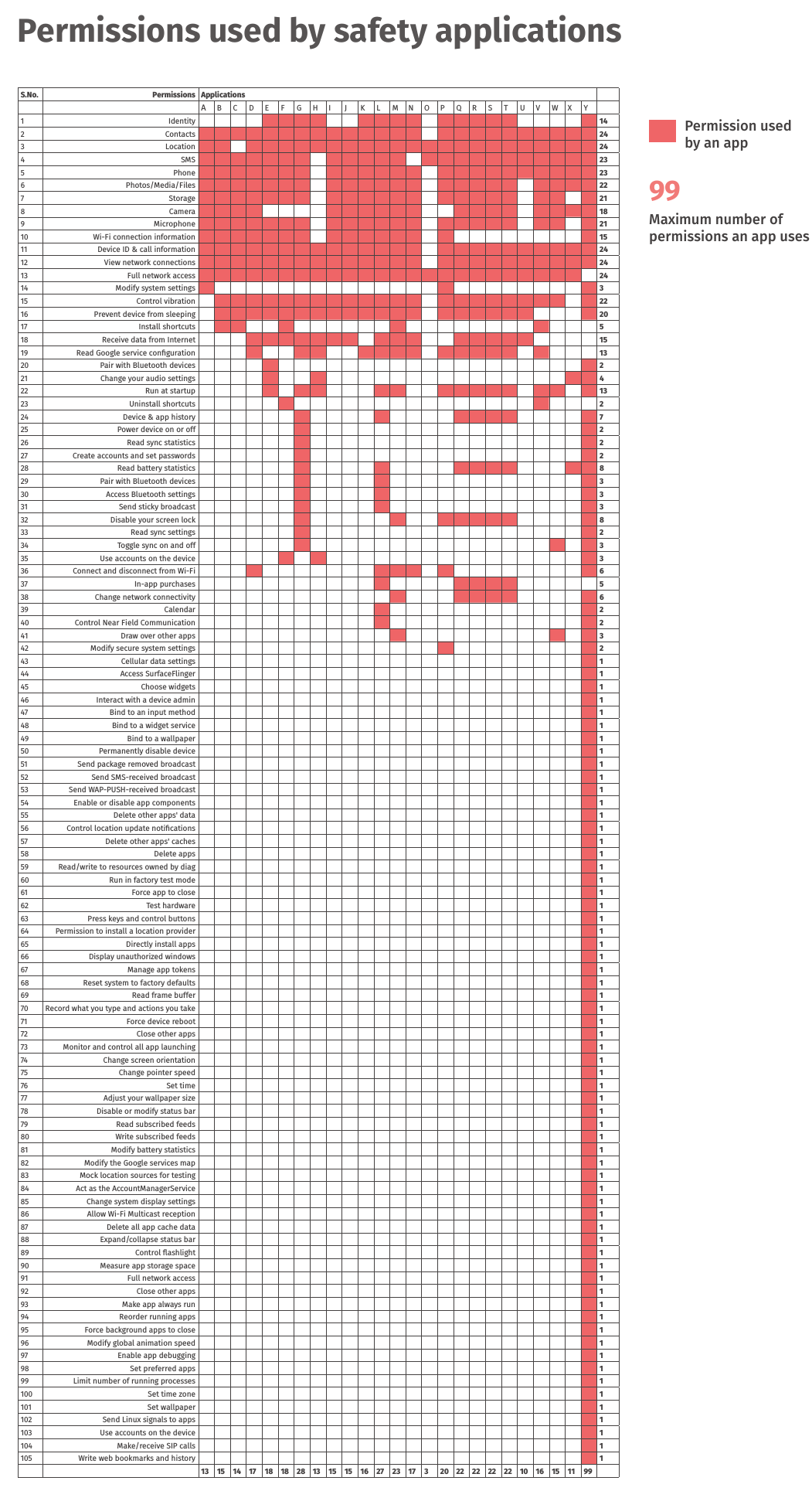Evaluating Safety Buttons on Mobile Devices: Preview
-
RAW
Rohini Lakshané,Chinmayi S.K.
27 March 2017
Download the preview document: PDF
There is currently a deluge of mobile safety apps in India: Apps run or supported by police departments, apps run by public transport services, apps endorsed by celebrities and politicians, an app developed by an entertainment television channel, and apps by NGOs and private developers. Through a public notification made in April 2016, the Ministry of Women and Child Development in India announced that every phone sold in the country from January 2017 should come equipped with a physical panic button and a GPS module 2. An international innovation award for USD 1 million was instituted in late 2016 for innovators to build an emergency alert app.
Preliminary user-testing conducted by us shows that many of these apps lack in technical quality and are prone to failure of one kind or another. There are no defined policies of privacy or terms of use, which could lead to possible data and identity theft and egregious surveillance of users.
This study will evaluate a total of 26 different apps operational in India, the permissions they use, the privacy policies and end user agreements on their websites, and will also undertake qualitative case studies of the use and deployment of some of these apps.
The questions framing this evaluation are:
- What are the technical concerns (including those of accessibility and literacy) with user experience of these safety button applications being developed and deployed by both government and private agencies, especially at a moment of crisis?
- How well do the widely used safety button applications in India protect the data shared by the user and the user’s privacy?
- What technical and other solutions can be implemented to ensure more effective, accessible, secure, and responsible modes of communication in such a context?

We are releasing one of the datasets that logs all the different permissions sought by selected “safety applications” available on the Google Play store in India. It was compiled in November 2016.
The dataset has been released under the CC-BY-NC-ND 4.0 International license. All uses of the accompanying data or parts thereof must contain the following attribution: “Data provided by Rohini Lakshané (Centre for Internet and Society) and Chinmayi S K (2018)”. To request a waiver, email rohini [at] cis-india [dot] org. Data are provided AS-IS, without warranty as to accuracy or completeness.
Zenodo record: https://zenodo.org/record/3630585
Click to download: